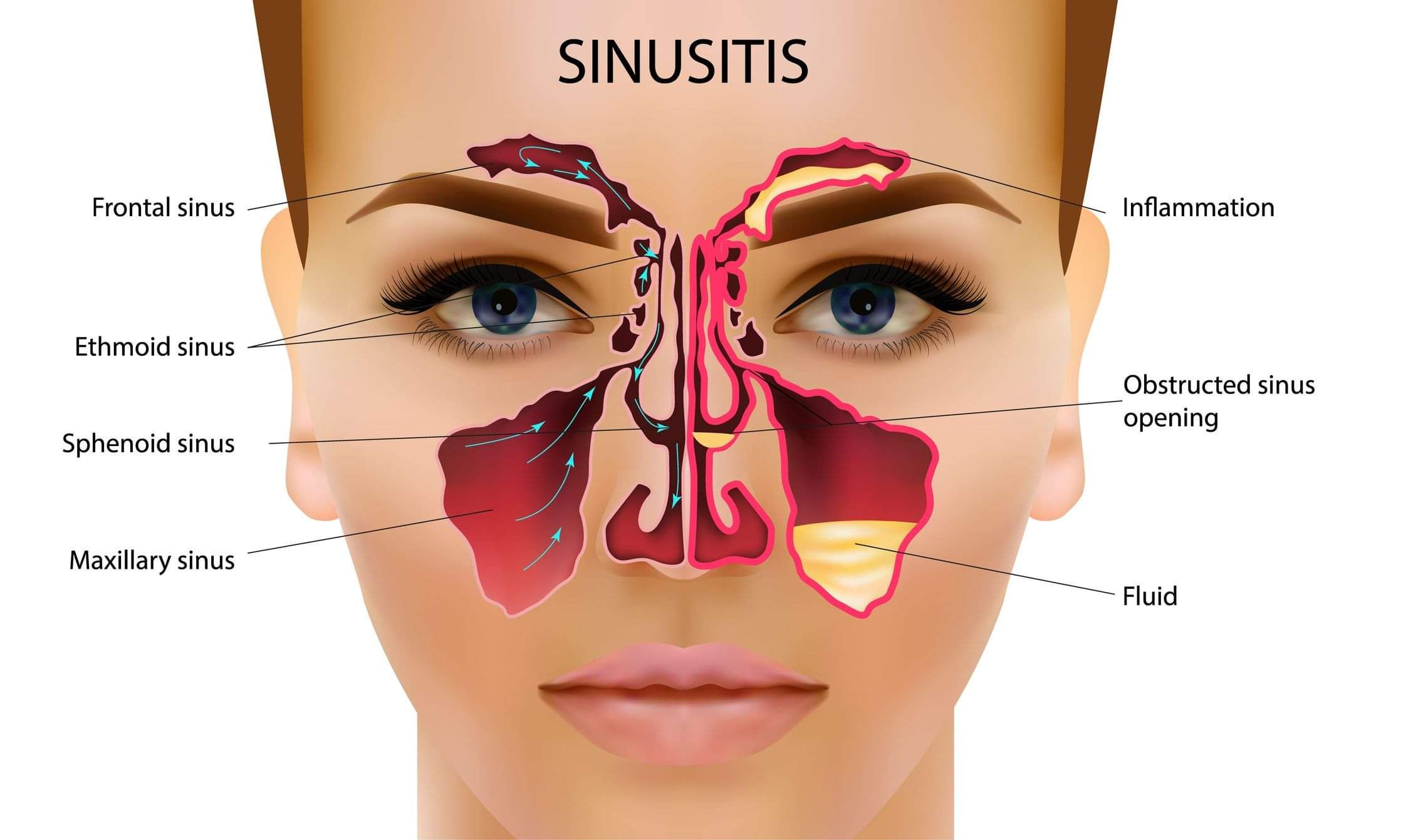Surgeries of the Nose & Sinus
Functional Endoscopic Sinus Surgery (FESS)
Functional Endoscopic Sinus Surgery is a minimally invasive procedure used to treat chronic rhinosinusitis (CRS) and other sinus conditions by restoring normal sinus drainage and ventilation. It is indicated for patients who do not respond to conservative treatments such as medications (antibiotics, nasal sprays) or allergy management. It is also used for patients with recurrent acute sinusitis, nasal polyps , sinus tumors, or structural abnormalities of the sinuses that obstruct normal drainage.
FESS involves using an endoscope - a small, flexible tube with a camera and light - to visualise and access the sinus openings through the nostrils. During FESS, the surgeon enlarges or creates new openings in the sinuses, removes diseased tissue, and may address issues like nasal polyps or deviated septum. This minimally invasive approach preserves normal nasal anatomy, resulting in less pain, faster recovery, and reduced risk of complications compared to traditional open surgery.
In some cases, intra-operative image guidance may be necessary to ensure complete clearance of inflammatory disease. Unlike in the past, nasal packing is generally not required post-operatively, since is used to cause discomfort. Advances in anaesthesia and surgical techniques have minimised the risk of significant bleeding during and after surgery. As a result, patients can often go home the same day or stay overnight if needed.

After Surgery
Patients are advised to perform saline nasal washes four times daily for at least three months to promote healing. Close follow-up visits are scheduled to assess sinus visualisation and remove any remaining debris not cleared by saline irrigation.
The operative techniques in FESS have evolved significantly, focusing now on creating functional sinus cavities by opening all affected sinuses. The traditional approach of sinus scraping, which often provided limited relief, has been replaced. Surgery now aims to open diseased sinuses, ensuring they are effectively irrigated post-operatively and monitored in follow-up appointments. Furthermore, recent improvements in imaging, intra-operative techniques, instrumentation, anaesthesia, post-operative care, and understanding of sinus diseases have notably enhanced outcomes for patients undergoing sinus surgery.
Patients suitable for FESS typically undergo medical therapy first before opting for the surgery which is highly effective in improving symptoms such as nasal congestion, facial pain, and headaches. The procedure aims at enhancing the overall quality of life for patients suffering from chronic sinus conditions.